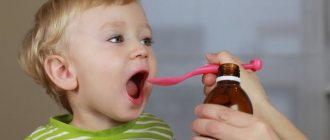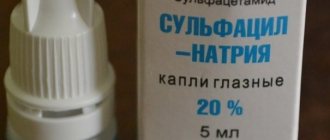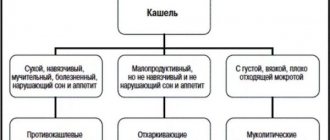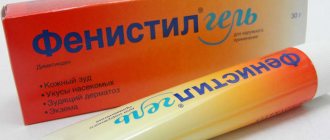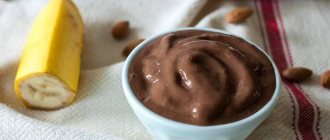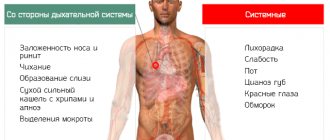Questions, answers, reviews on the drug Breast Elixir
You can look at questions about the drug, as well as ask your question to a specialist, using a free consultation with a pharmacist or pharmacist.
The information provided is intended for medical and pharmaceutical professionals. The most accurate information about the drug is contained in the instructions supplied with the packaging by the manufacturer. No information posted on this or any other page of our website can serve as a substitute for personal contact with a specialist.
| * | Our site does not sell medicines and other goods; they must be purchased in pharmacies, in accordance with current laws. Data on prices and availability in pharmacies is updated twice a day. Current prices can always be seen in the section Searching and ordering medications in pharmacies. |
How to take breast elixir for children
Each drug has its own recommendation for use. It must be observed especially clearly when it comes to treating children. Take the drug 1 time in the morning on an empty stomach or an hour after breakfast, unless otherwise prescribed. In this case, the product should be shaken first, since the beneficial components sometimes settle to the bottom of the bottle.
How to take breast elixir for children
Each age has its own recommendations on how to take the breast elixir. Mothers must take this into account by agreeing on the frequency of use with their doctor.
- Children from 2 to 6 years old are given 10-15 drops per dose, diluted with a small amount of water.
- 6-12 year old children are given 15-20 drops.
- From 12 years old it is already allowed to use an adult dosage - this is about 20-40 drops.
If you have a severe cough, your doctor may prescribe 2-3 doses of breast elixir. The instructions for use included with the drug provide dosage recommendations for children under 12 years of age. Age is taken into account - how many years, so many drops of medicine. The entire course of treatment should not exceed 5 days.
Ammonia-anise cough drops
Anise drops - a cough medicine well known in former times, is an effective remedy in the fight against dry and wet cough. Many people from childhood remember the taste of ammonia-anise drops, which were prescribed by pediatricians for colds and bronchitis. And they always helped, after a few days the cough became productive.
The drug does not have the sickly sweet taste that modern cough syrups are so prone to. Also, the product does not contain harmful chemical additives like tablets. And the ammonia-anise drops are mere trifles. This is why it can be difficult to find a drug in a pharmacy: it is not profitable for pharmacologists to sell cheap medicine.
Composition of the drug
The yellow vial contains anise oil, ammonia and ethyl alcohol. Quantity – 25 or 40 ml in a bottle. The appearance of the product is a colorless or pale yellow liquid with the smell of anise or ammonia.
Action of the medicine
Ammonia anise drops have an expectorant and anti-inflammatory effect in diseases of the respiratory tract. Its effectiveness in coughing is due to its constituent components, primarily anise oil.
The essential oil of this plant contains an aromatic substance called anethole, which stimulates the secretion of mucus, its movement through the bronchi, and also has an antiseptic effect. With the help of ammonia, sputum turns from thick to liquid and is easily removed from the respiratory tract. When combined, these substances help cope with the following diseases:
- Pharyngitis;
- Tracheitis;
- laryngitis
- Bronchitis (acute and chronic);
- Bronchopneumonia;
- Whooping cough.
Ammonia-anise drops can be taken for any cough, and the drug can also be combined with other medications that have an anti-inflammatory and expectorant effect.
Additional properties
Anise oil has a carminative effect, helps to cope with flatulence, and can also improve digestion.
Mode of application
Ammonia-anise drops are taken orally 3 times a day. It is necessary to take into account that the product cannot be drunk in its pure form, otherwise it can cause irritation and burns of the gastric mucosa.
The instructions say that the drops must be diluted with clean water. For adults, 50 ml of liquid in which 10-15 drops are dissolved will be enough. Children are prescribed as many drops per dose as the child is old. For example, if the baby is 4 years old, he is given 4 drops 3 times a day.
Side effects
Medicine for treating cough - ammonia-anise drops, as a rule, is well tolerated. Individual sensitivity is very rare; the instructions indicate the possibility of developing an allergic reaction, nausea or vomiting.
Contraindications
Since the product can irritate the mucous membrane, it is undesirable to use drops for gastritis and peptic ulcers. The instructions advise not to use the medicine for people whose profession requires increased attention, for example, vehicle drivers. Use the medicine with caution for liver diseases, alcoholism, during lactation, and for traumatic brain injuries.
Since the effect of the drug is aimed at thinning sputum, drops with anise oil cannot be combined with cough suppressant tablets.
Breast elixir. Instructions
Pharmacological group
An expectorant of plant origin with a mucolytic effect.
Release form and composition
The breast elixir is available in the form of an elixir in 25 ml bottles.
100 ml of the drug Breast Elixir contains:
– Licorice extract – 20.7 g
— Anise oil — 0.34 g
— Ammonia aqueous — 1.38 g
pharmachologic effect
The components of the breast elixir have an expectorant and mucolytic effect, which is due to the dilution of sputum and increased activity of the ciliated epithelium of the mucous membrane of the respiratory tract.
In addition to the expectorant effect, licorice extract also has immunostimulating, antispasmodic, anti-inflammatory, antiviral and regenerating effects.
Instructions. Indications for use
— Diseases of the respiratory tract and lungs, accompanied by the formation of viscous, difficult-to-exceed sputum: acute and chronic bronchitis, COPD, obstructive bronchitis, bronchial asthma, pneumonia, laryngitis, pharyngitis, tracheitis, tracheobronchitis, pulmonary tuberculosis, influenza, etc.
— Treatment of productive cough
Instructions. Contraindications for use
— Hypersensitivity to the components of the drug
Use during pregnancy and breastfeeding
The use of the drug Breast Elixir during pregnancy and lactation has no absolute contraindications, but it is advisable to coordinate its use with your doctor.
Side effects
— From the digestive system: dyspeptic symptoms in the form of nausea.
— Allergic reactions: skin itching, skin rash, urticaria, angioedema, etc.
Directions for use and recommended doses
For adults and children over 12 years of age, the Breast Elixir is prescribed in a dosage of 20-40 drops 3-4 times a day.
For children aged 6 to 12 years, Breast Elixir is prescribed 15-20 drops 3 times a day.
For children aged 2 to 6 years, the dosage is 10-15 drops 3 times a day.
Note
The drug Chest Elixir is not recommended for use simultaneously with drugs that block the cough reflex, such as codelac, terpincode, sinecode, stoptussin and libexin, which are used to treat dry cough. When used simultaneously, there is a danger of sputum stagnation in the tracheobronchial tree, which is dangerous due to the proliferation of infectious agents, resulting in increased inflammation and damage to the wall of the bronchial tree.
Combined use is possible only when alternating these drugs: expectorants (bromhexine, mucaltin, etc.) are used during the day, and antitussive drugs are taken once at night (for more complete rest at night).
Opinions
Before purchasing this product, read the reviews:
Olga: “I’ve heard about the benefits of breast elixir for a long time, but when my child got sick, the first thing I did was seek medical help. The doctor strictly forbade the use of drops, since in our case there was a risk of a severe allergic reaction.”
Irina : “We bought the breast elixir on the advice of the pharmacist. Despite the fact that the drug is quite cheap, it helped us on the second day of treatment. I used to think that the more expensive the product, the more effective it is. But on the fifth day of treatment, the child developed itching, burning and severe skin irritation. So I stopped the course, and the allergic reaction went away immediately.”
Evgenia: “I treated my cough with chest drops as a child. Therefore, when I had a sore throat, I immediately used a familiar remedy. As a result, the cough became much softer, phlegm cleared up, and the general condition improved. I liked this effect, so from now on I will only use them.”
Alla: “Being in the second trimester, I developed a severe cough. Judging by the instructions for use, it can be used without the risk of pathological development of the baby. I used it every day for five days. The cough became noticeably softer, the attacks decreased, and at the end of the treatment the inflammation completely disappeared.”
About the structure and composition of drops
A natural remedy for treating coughs and removing phlegm is chest elixir. Its plant base allows the product to be used in the treatment of not only adults, but also small children.
The structure of the drug includes anise essential oil, licorice extract, and aqueous ammonia.
This combination allows you to thin out thick secretions in the mucous membrane of the bronchi and lungs. In addition, the product helps improve expectoration.
The combination of all active components allows for antiviral and anti-inflammatory effects. In addition, this drug improves the functions of the body's defense system and acts as an effective immunostimulating agent.
- Licorice root extract improves expectorant functions thanks to glycyrrhizic acid, which is part of the plant. In addition, this ingredient demonstrates an antispasmodic effect and also has a detrimental effect on viruses and bacteria. Other advantages of this component include antispasmodic and immunostimulating effects.
- anise oil was added to the mixture . In combination with licorice extract, these components reduce the level of inflammation in the bronchi and also improve the functioning of the respiratory system. In addition, the anise ingredient with atenol improves the outflow of phlegm, which is necessary for a productive process. Therefore, this medication copes with acute inflammation of bronchitis, pneumonia and cough asthma.
- In order to reduce spasms in the bronchi and improve the general condition of the patient, ammonia or ammonia . The irritating properties of the component make it possible to improve the sensitivity of receptors, which increases the functions of the immune system, and also enhances resistance to pathogenic microflora.
In addition, the breast elixir is used to achieve the following goals:
- restorative effect;
- sedative effect;
- mitigation of dry cough;
- softening of wheezing;
- moisturizing the mucous membrane of the throat;
- elimination of debilitating coughing attacks.
In addition, the drops help reduce spasms in the bronchi and speed up the healing process. When taken regularly according to the dosage, the drug relieves pain in the sternum and lungs.
Why your lungs hurt when you cough and how to cure the pathology can be found here.
When can you use the elixir?
Chest cough drops should be used in the following cases:
- in the treatment of cough due to pharyngitis;
- when coughing due to acute or chronic bronchitis;
- with inflammation of the throat mucosa;
- against the background of acute respiratory disease;
- with a debilitating cough;
- for complex treatment of prolonged cough;
- as the main remedy for the treatment of obstructive bronchitis;
- for bronchial asthma;
- for complex therapy of laryngitis;
- tracheitis;
- pneumonia;
- pharyngitis;
- tracheobronchitis;
- with flu or cold;
- pulmonary tuberculosis;
- obstructive pulmonary disease in chronic form.
How to treat cough asthma is described in this material.
